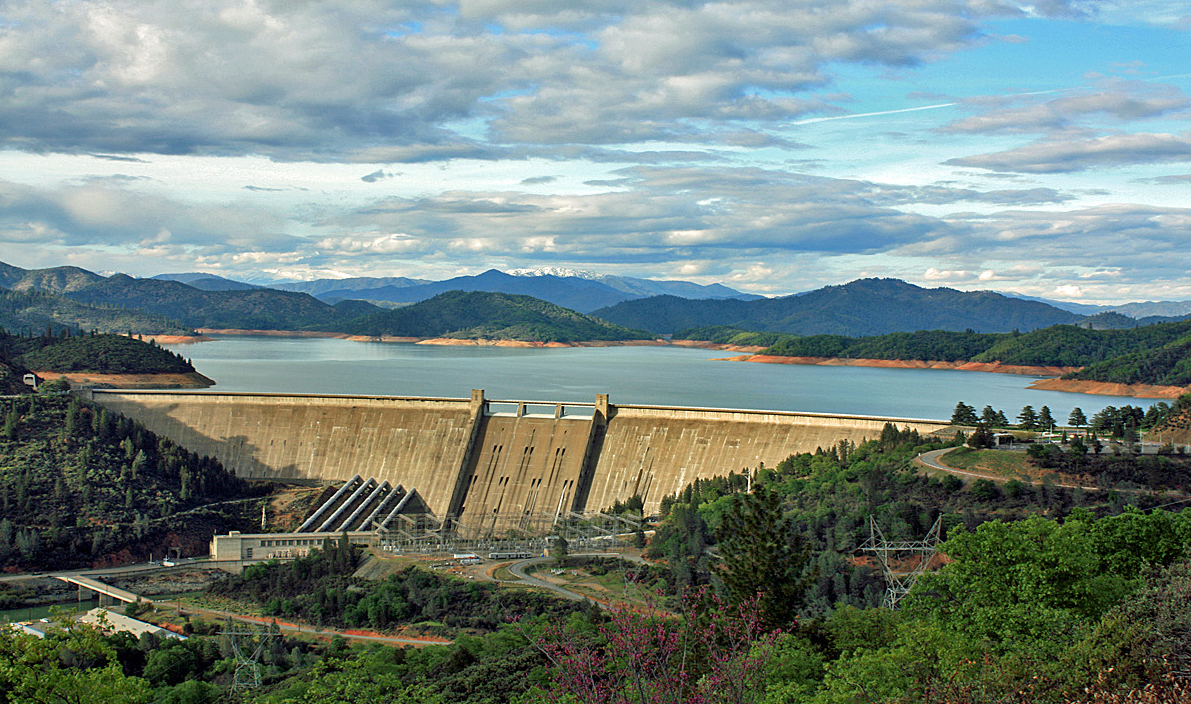Westlands Water District isn’t giving up on raising Shasta Dam, or at least exploring the possibility of raising it.
The district, stopped in late July by a Shasta County judge from conducting an environmental study on the impact of raising Shasta Dam, filed a petition with the Sacramento-based Third District California Court of Appeal on Monday to vacate the trial court’s injunction.
Westlands was seeking to prepare an environmental impact report on raising the Dam by up to 18.5 feet in an effort as part of procedure to determine if the district would contribute its own funds to the Federal project.
In order to complete a raise of the Dam, Westlands or other similar agencies would need to share half the cost of construction with the Federal government.
The Shasta Dam enlargement project was awarded $20 million by Congress in 2018 via the Water Infrastructure Improvements for the Nation (WIIN) Act, a key bill authored by Sen. Dianne Feinstein (D-Calif.) and House Republican Leader Kevin McCarthy (R-Bakersfield) in 2016.
California Attorney General Xavier Becerra intervened in the district’s move to study the project, arguing that the $1 million environmental study would violate California’s Wild and Scenic Rivers Act.
The act prohibits state agencies from planning or constructing any dam with the Federal government that “could have an adverse effect on the free-flowing condition of the McCloud River, or on its wild trout fishery.” Lake Shasta is fed by the McCloud River.
In a statement Monday, Westlands’ general manager, Tom Birmingham, argued that Becerra’s move to shut down the district’s environmental study leaves a major question unresolved.
“To date, no agency of the state has conducted any study to evaluate whether enlarging Shasta Dam by up to 18.5 feet, which Reclamation is proposing, would have adverse effects on the McCloud River,” Birmingham said.
In argument, Becerra and the Attorney General’s office relied on a 2015 environmental scoping report from Reclamation that Becerra claimed demonstrated negative impact on the McCloud River.
However, as Birmingham noted, no state agency has ever undertaken its own environmental review.
Birmingham also took aim at Becerra’s characterization of what would constitute a lawful method of studying the Shasta Dam raise.
In arguments to the Shasta County Superior Court, the California Attorney General said Westlands could study the effects of a dam raise “in the abstract” but could not conduct a study as sanctioned by CEQA, California’s marquee environmental law.
“The Attorney General obtained this injunction against Westlands for the express purpose of excluding the public and other agencies from the District’s analytical process,” Birmingham said. “In more than 35 years of experience working on issues related to CEQA, I am unaware of any court ever enjoining the preparation of an environmental impact report.”










